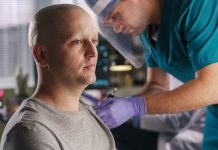The UK government is investing £82.6 million in groundbreaking research to harness the power of AI to transform cancer care and accelerate drug discovery
The UK Government will support research using artificial intelligence (AI) to transform cancer care and accelerate drug recovery.
They will invest £82.6 million, including £37.9 million from the government and £44.7 million from co-investors. This money will support British AI companies and researchers in tackling some of the world’s most pressing medical challenges.
AI in UK healthcare
The funding, announced on February 11, 2025, is part of the UK’s commitment to developing AI technologies that can revolutionise healthcare. The investment will specifically support AI models designed to improve the diagnosis and treatment of cancer and diseases like Alzheimer’s.
These projects are supported under the Research Ventures Catalyst (RVC) programme, which provides flexible funding options tailored to the needs of cutting-edge innovators.
Transforming the future of cancer care
Two of the most promising projects benefiting from the RVC programme focus on AI’s role in transforming cancer care. One project, PharosAI, is working to combine vast NHS data and biobank information into a strong AI platform. This will hopefully inspire the next generation of AI models for diagnosing and testing cancer.
PharosAI, based at King’s College London, has received £18.9 million in government funding, with an additional £24.7 million in co-investment. The project is set to revolutionise cancer care by speeding up diagnosis, enabling more targeted treatments, and enhancing healthcare delivery.
Gov.UK reported that Professor Anita Grigoriadis, CEO of PharosAI, explained, “AI has the potential to revolutionise cancer care. The UK has a real opportunity to be a major innovator, leading to faster diagnosis, novel and more targeted cancer treatments, and better-informed healthcare for patients.
“Our innovative collaboration will accelerate scientific breakthroughs and bring vastly improved cancer care to tomorrow’s patients.”
Undruggable proteins
Another project, Bind Research, is using AI to target “undruggable” proteins, a breakthrough that could unlock treatments for diseases once considered untreatable.
With £12.9 million in government funding and an equal amount in co-investment, Bind Research aims to use AI to identify new druggable proteins.
Dr Gabi Heller, co-founder of Bind Research, noted, “The Research Ventures Catalyst Programme has been a game changer for Bind Research. It allowed us to reimagine our approach by adopting a not-for-profit Focused Research Organisation model – a strategy that, until now.”
As well as cancer and drug discovery projects, the UK government is expanding its involvement in the European High-Performance Computing (EuroHPC) initiative, with £7.8 million in commitment.
This collaboration will give UK researchers and businesses access to advanced computing resources, facilitating seamless collaboration with their European counterparts on innovative scientific projects.
Wes Streeting, the Health and Social Care Secretary, expressed his enthusiasm for AI’s potential in healthcare. Reflecting on his personal experience with cancer treatment, he said, “AI will help us speed up diagnoses, cut waiting times for patients, and free up staff as we deliver our Plan for Change and shift the NHS from analogue to digital.”
Supporting urgent healthcare challenges
Overall, the RVC programme’s flexible funding model is designed to meet new research needs, helping them overcome traditional funding barriers.
With the government’s support, these projects are set to drive advancements in AI and healthcare, ultimately improving patients’ lives in the UK and worldwide.
By committing to this funding, the UK is becoming a global leader in AI technologies to solve some of the most urgent health challenges, from cancer care to drug discovery.











